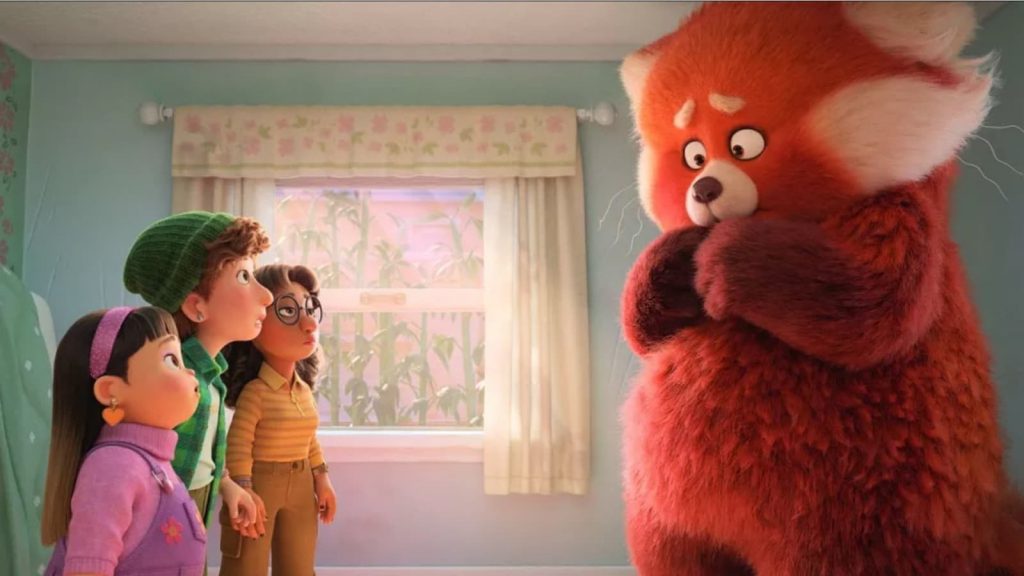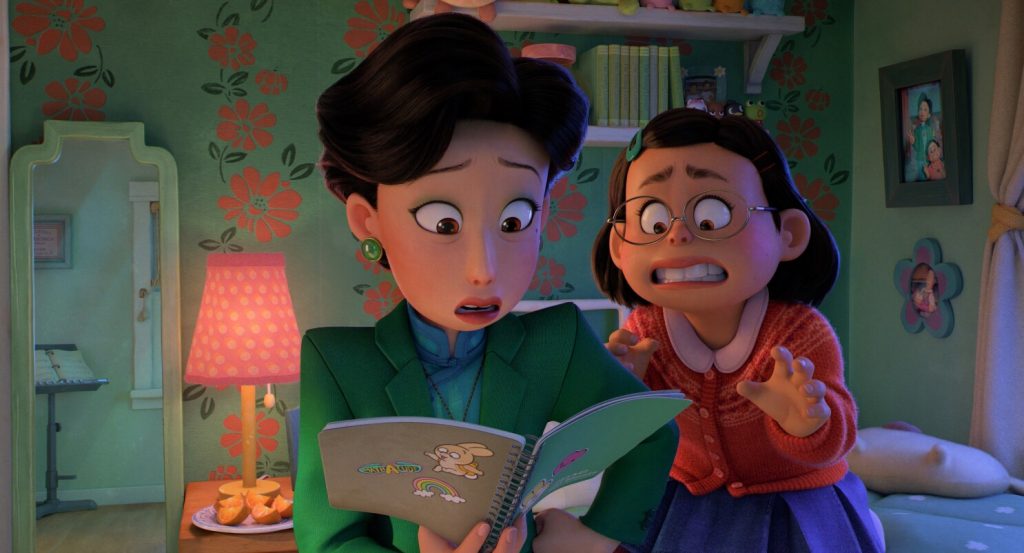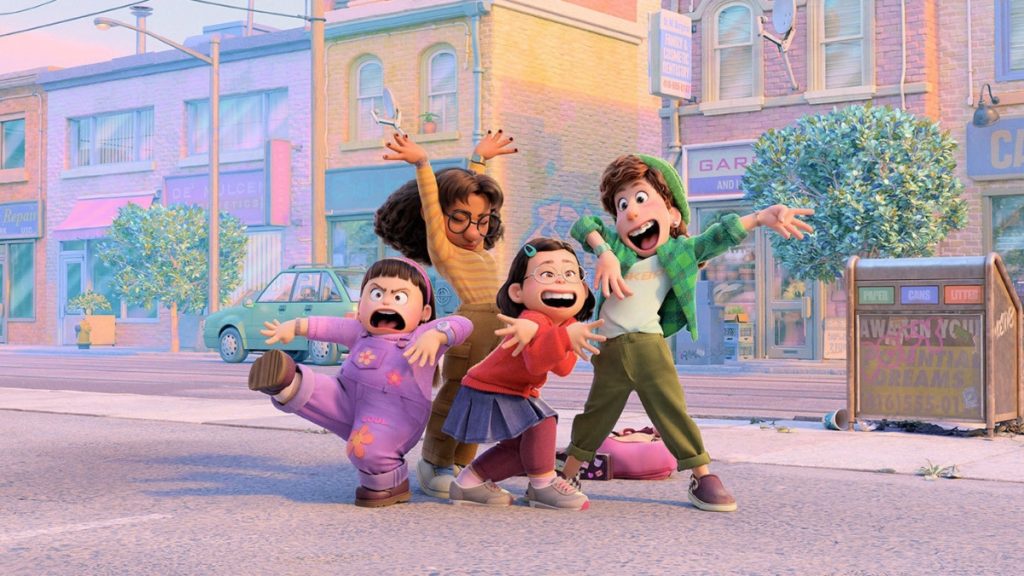
From Pixar, an animation company currently owned by Disney and known for its critically and commercially successful computer-animated films widely known to be enjoyed by a plethora of ages, comes a Disney Plus original film: Turning Red.
WARNING: SPOILERS AHEAD
Released on February 22, 2022 on Disney Plus, Turning Red has been catapulted into the limelight as a result of the unfamiliar explicitness of the Pixar film’s many mature themes surrounding the complex structures of generational conflict and trauma, family dynamics, ancestral expectations within collectivist cultures, the crippling pressures and burden children have passed down to them by their parents, and the chaotic, often embarrassing experience of one’s early teenage years.
Turning Red is not the first cinematic creation of either Pixar or Disney which has explored very similar of these more mature, over-arching thematic elements: Disney’s Encanto, released earlier this year, depicts the familial hardships that are a product of past generations, and Pixar’s Coco (2016), tells the story of a young boy who feels restricted by his family’s generational hatred of music. However, neither of these highly enjoyed films explored the intersection between the natural messiness of growing up as a pre-teen or young teenager while having to deal with additional prominent obstacles involving family members. Turning Red turns, quite literally, this implicit trend back on its head.
Directed by Domee Shi and written by Julia Cho, Domee Shi and Sarah Streicher. Turning Red follows Meilin “Mei” Lee (voiced by Rosalie Chiang), a thirteen-year-old, Chinese-Canadian girl living in Toronto as she becomes increasingly torn between obeying and living up to her mother, Ming Lee’s (Sandra Oh) expectations, and indulging in the experiences her youth has to offer. To make matters worse, Mei turns into a giant red panda whenever her emotions heighten too far.

Ming Lee’s standard for her Mei is that she pay little to no attention to pop culture, crushes, social media, or popular television, and that she distance herself from her respective peers who do so. Therefore Mei spends her free time putting extra amounts of focus on studying to continue her record of exemplary grades. Although Mei genuinely appreciates the time she spends helping her mother lead informational tours through their family’s temple and make dumplings with her, her personal interests tends to clash with how her mother expects her to act outside of their family moments.

Mei’s memorably witty group of close-knit friends consists of the carefree Miriam (Ava Morse), the cool and collected Priya (Maitreyi Ramakrishnan), and the aggressively loyal Abby (Hyein Park). Mei has been accompanied and supported by them through shared experiences of having crushes and obsessions with celebrities such as the film’s fictional boy band, “4Town”.

Her mother, Ming, however, has formed her own opinions on the girls, specifically Miriam. She believes that Mei should not be encouraged or influenced into engaging with current pop culture among her peers, or be thinking about boys she is romantically interested in because it is inappropriate for someone her age and detrimental to her development, which, as the film teaches us at the end, is actually quite incorrect.
Some of the most significant and impactful moments of Turning Red are the depictions of dramatized but nevertheless widely shared pre-teen and teenage experiences that even films catered towards an audience of that age demographic often shy away from exploring.
For instance, Mei draws her convenient-store crush in a notebook and fantasizes about a romance with him, only for her mother to open the notebook and gape in shock and panic, becoming angry with the teenage cashier and exposing Mei’s personal feelings to him and some of her classmates. This leads to Mei’s classmates to spread rumors about her at school, calling her a “perv” and taking her innocent likeness towards the cashier worker way out of proportion.
In addition, arguably nothing in Turning Red surprised audience’s more than the sequence when Ming thinks Mei has gotten her period for the first time and rushes to her assistance with a slew of materials, resources, and advice. The unapologetic, raw nature of this scene discussing an often personal subject matter is definitely a twist on Pixar and Disney’s usual format.
“I really liked the movie because my younger, pre-teen self could relate to the chaotic, embarrassing moments Mei experienced, and they were portrayed in a realistic, relatable way.” said Sydney T., a junior at AISG.
“I was surprised at how not-subtle the filmmakers were about things like puberty and feeling strong emotions for other people. It was definitely a little shocking at first, but experiences like that can be understood by any kids around the same age who watch the movie, so I don’t think it’s too mature.” said Max N., also a junior at AISG.
Turning Red has been recognized by many as Pixar’s visually and thematically captivating first venture into more personal, realistic portrayals of childhood hardships and events.